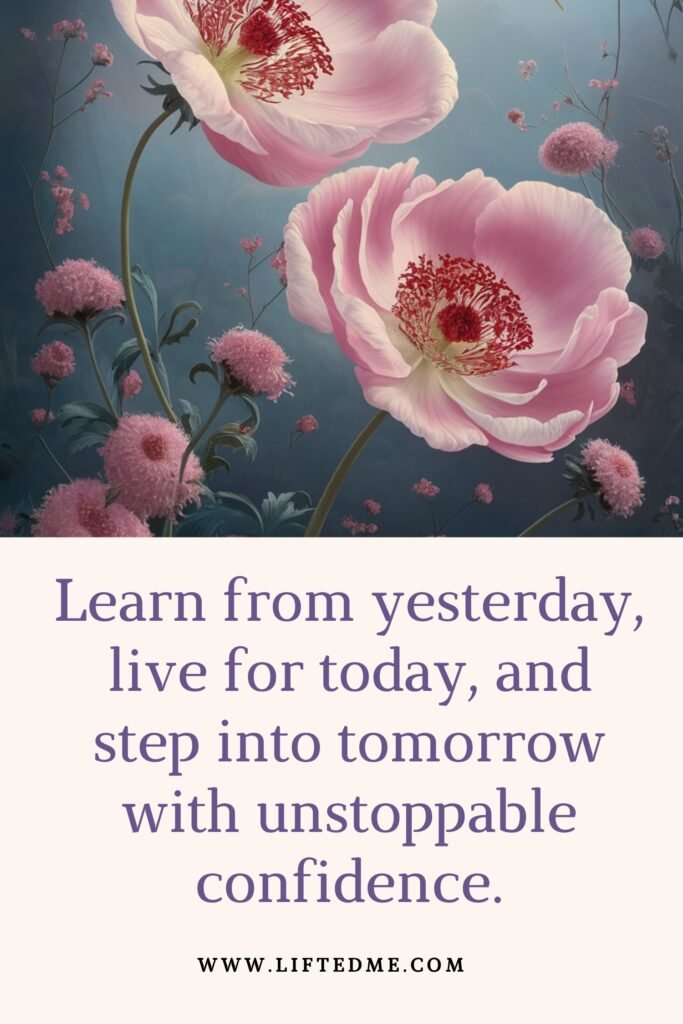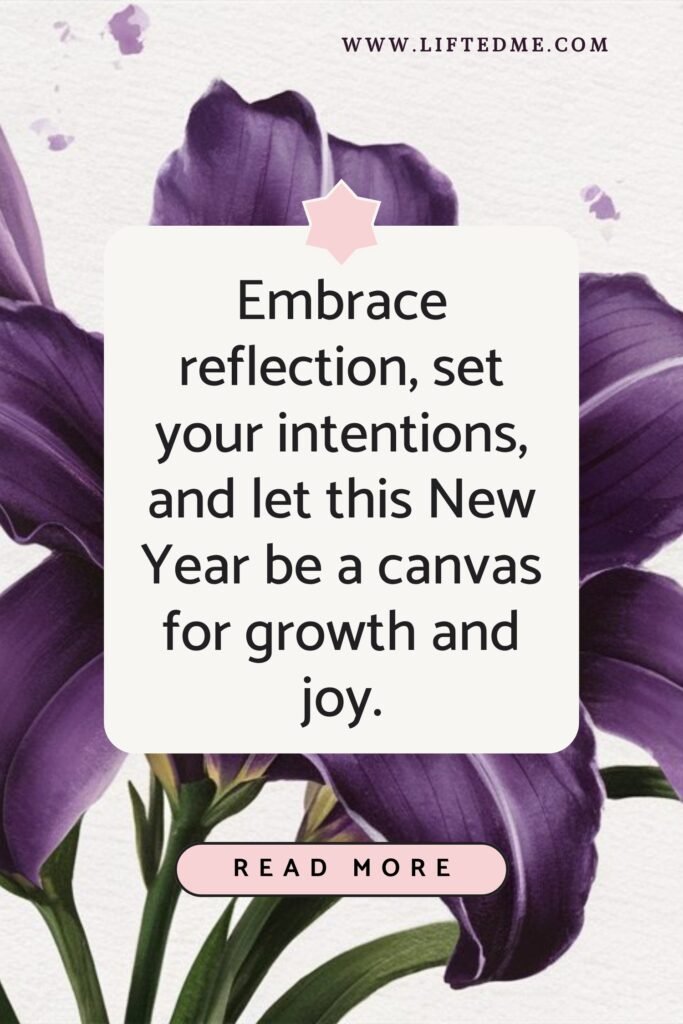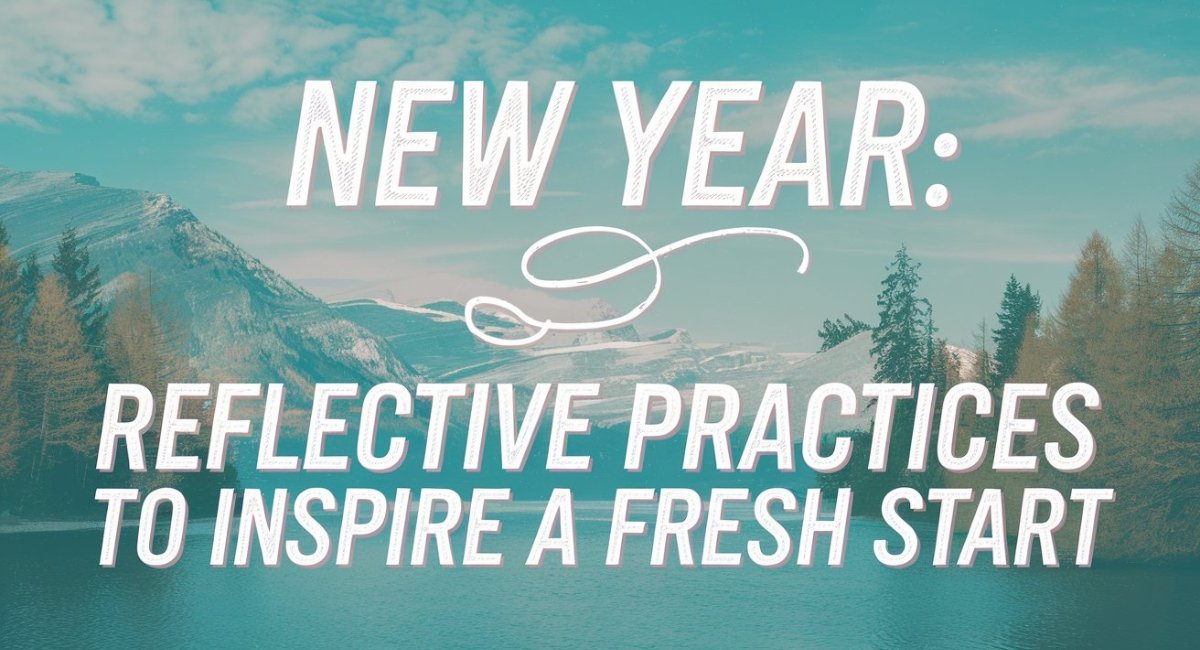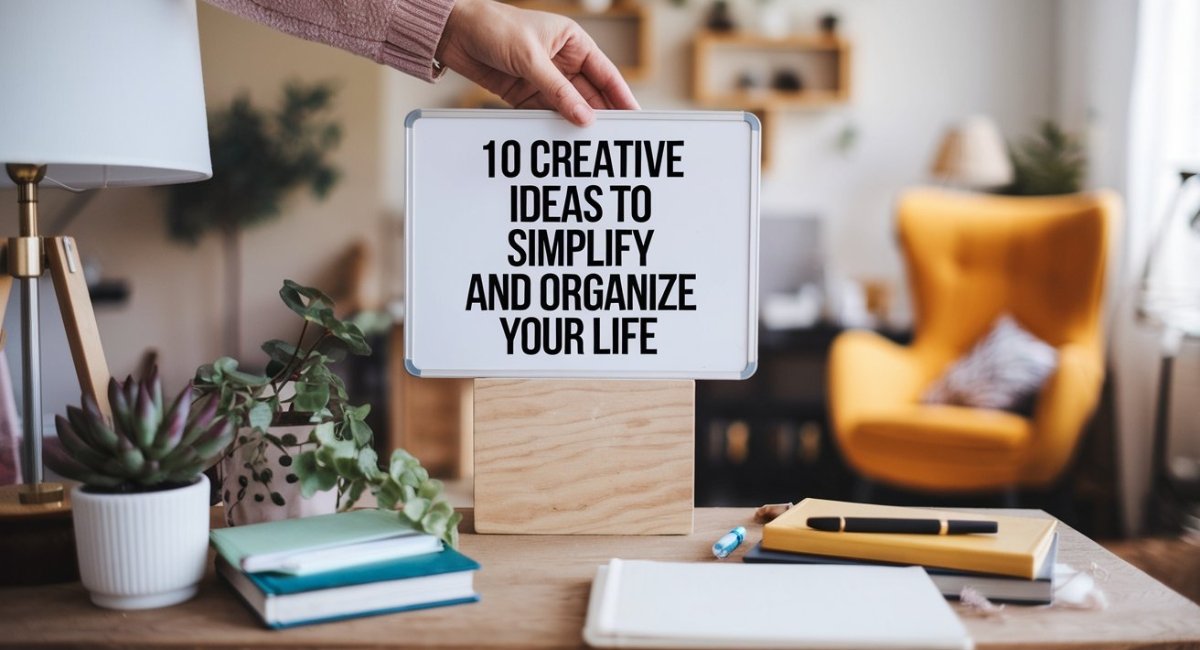New Year: Reflective Practices To Inspire A Fresh Start
This post contains paid and/or affiliate links. I make a small commission at no extra cost to you. Please see our Privacy Policy.
Reflecting on the Past and Embracing the Future. The start of a new year is a chance to look back and look forward. Reflective Practices can spark motivation and clarity. It helps you figure out what truly matters, setting the stage for a meaningful Fresh Start.
Understanding Reflective Practices
Reflective practices mean taking time to think about your experiences and feelings. They help you grow and gain insight. Here are some ways to add reflection to your routine:
- Journaling: Writing down your thoughts and feelings can clarify your experiences. It lets you express what you want to leave behind and what you want to welcome into your life.
- Mindfulness: Mindfulness keeps you in the present. By observing your thoughts without judgment, you can understand your patterns and feelings better.
- Goal Setting: Think about your past successes and set new goals. Consider what you want to achieve this year and how to take steps towards it.
The Power of Journaling
Many find journaling helpful for exploring their thoughts. It’s a simple process:
- Find a quiet place.
- Set a timer for 10-15 minutes.
- Write freely without worrying about grammar or structure.
As you write, focus on your feelings about the past year. What worked well? What didn’t? This can highlight patterns and growth opportunities.

Practicing Mindfulness
Mindfulness can change how you start the new year. Here are a few techniques to try:
- Breathing exercises: Spend a few moments focusing on your breath. This calms your mind and increases awareness.
- Guided meditations: Use apps or online videos to guide you through meditation focused on reflection and renewal.
- Nature walks: Connect with nature by walking mindfully. Notice the sounds, sights, and sensations around you.
These practices can help you feel grounded, making it easier to start anew with clarity and peace.
Setting Meaningful Goals
Reflecting on your past helps you set intentional goals. Here’s how to make your goals effective:
- Be Specific: Clearly define what you want to achieve.
- Make it Measurable: Identify how you will track progress.
- Ensure Realism: Dream big, but make sure your goals are achievable.
- Set a Timeline: Give yourself a deadline to create urgency.
For example, instead of saying “I want to get fit,” say “I will run 5 kilometers three times a week for the next three months.”
Embracing Change Through Reflection
The first step to a fresh start is embracing change. Reflective practices help you face fears or challenges as the year unfolds. What if you had a setback? See it as a chance to learn, not a failure. Reflection can turn these experiences into positive lessons.
Also, consider reaching out to friends or family for support. Sharing your reflections can create a network of encouragement. Whether it’s starting a group goal or discussing aspirations over coffee, community can enhance your journey.
Gratitude for the Journey
As you start this new year, take a moment to appreciate your past. Acknowledge the lessons learned and the strength gained through your experiences.
- Keep a gratitude journal, noting three things you’re thankful for each day.
- Reflect on your achievements to remind yourself of your capabilities.
This shift in perspective fosters resilience and prepares you for new beginnings.
By adding reflective practices to your life, you create a fertile ground for growth and transformation. As the new year unfolds, let reflection guide your journey towards an inspired and fulfilling fresh start.

Setting Goals: Crafting Your Vision for the New Year
As the New Year approaches, many of us feel a surge of motivation. It’s a time to reflect on the past and envision what we want for the future. Crafting a clear vision and setting goals can help you channel that motivation into results. Here are some effective strategies to set your goals for the New Year.
Reflect on the Past Year
Before you start setting goals, take a moment to think about the past year. Ask yourself:
- What achievements are you proud of?
- What challenges did you face?
- What lessons did you learn?
This reflection will help you understand your strengths and areas for improvement. Knowing what worked and what didn’t helps you set better goals for the future.
Envision Your Future
After reflecting, imagine the future you want. Think about your career, health, relationships, personal growth, and finances. Ask yourself:
- What does success look like for me?
- What habits do I want to develop?
- How do I want to feel?
Creating a vision board can help make these ideas clear. Use images and words that represent your goals. Display it somewhere you see it every day to stay motivated.
Set SMART Goals
To make your vision real, set SMART goals. Your goals should be:
- Specific: Clear about what you want to achieve.
- Measurable: Know when you’ve reached the goal.
- Achievable: Realistic and attainable.
- Relevant: Align with your life goals.
- Time-bound: Have a deadline.
For example, instead of saying, “I want to get fit,” say, “I will exercise three times a week for 30 minutes for the next three months.” This makes your goal clear and keeps you motivated.
Break Down Your Goals
Big goals can feel too much and lead to procrastination. Break them into smaller steps. Create a plan with mini-goals. For example, if you want to write a book, your steps might include:
- Outline your ideas.
- Set a daily or weekly word count target.
- Edit a chapter each month.
Having a clear plan helps you stay on track and feel accomplished as you complete each step.
Stay Accountable
Having someone to hold you accountable can help you succeed. Share your goals with a friend or join a group with similar goals. Regular check-ins keep you motivated and committed. Use reminders or apps to track your progress and keep your goals in mind.
Celebrate Your Progress
Always celebrate your achievements, no matter how small. Recognizing your progress boosts your mood and keeps you committed. Reward yourself when you reach milestones to reinforce positive behavior and keep you motivated.
Stay Flexible
Life is unpredictable. Be ready to adjust your goals if needed. Being flexible helps you handle challenges positively and prevents discouragement.
By reflecting on the past, envisioning your future, setting SMART goals, breaking them down, staying accountable, celebrating progress, and being flexible, you’ll create a powerful vision for the New Year. This structured approach inspires a fresh start and makes your journey purposeful and fulfilling.

The Power of Gratitude: Reflecting on the Past Year
As the year ends, many of us reflect on the past months. This reflection can fill us with gratitude, helping us acknowledge the positive moments. Gratitude is a powerful tool that can change our mindset and help us see the world more positively.
Thinking about what you’re thankful for shifts your focus to the good things. This mindset shift can bring many benefits, improving your emotional and mental well-being.
Gratitude can make you happier, reduce stress, and strengthen relationships. Here are some reflective practices to help you embrace gratitude:
Recognize Your Wins
Make a list of your accomplishments from the past year. It doesn’t matter how big or small they are. This simple act can help you appreciate your journey. You might have learned a new skill, deepened a relationship, or even taken time to care for yourself.
Acknowledging these moments can create a positive mindset. It helps you see how far you’ve come.
- Personal achievements (like fitness milestones or new hobbies)
- Professional growth (such as promotions or completed projects)
- Relationships (building stronger connections with friends or family)
By focusing on these achievements, you remind yourself of how far you’ve come. This rekindles motivation as you prepare for the upcoming year.
Why Gratitude Matters
Gratitude is more than just saying thank you. It’s about feeling it. When you practice gratitude, you change your brain’s chemistry. This promotes feelings of joy and contentment.
- Improved Mental Health: Gratitude can reduce feelings of depression and anxiety.
- Better Sleep: Keeping a gratitude journal can help you sleep better by focusing your thoughts on positive experiences before bed.
- Stronger Relationships: Expressing gratitude strengthens your connections to others and fosters a sense of community.
These benefits are compelling reasons to adopt gratitude as a regular practice in your life. When you choose to recognize the good, you automatically lessen the focus on negative experiences.
Journaling Your Gratitude
One effective method for cultivating gratitude is journaling. Each day, write down three things you are thankful for. This can be a special memory, a kind gesture from someone, or even a lesson learned.
As you write, allow yourself to feel those moments deeply. This emotional connection enhances the gratitude experience, making it more impactful. Revisiting your journal can serve as a powerful reminder when you face tough days in the future.
Express Gratitude to Others
A simple “thank you” can go a long way in nurturing your relationships. Reach out to people who have positively impacted your life, whether through a message, call, or handwritten note. This act not only brightens their day but also reinforces your appreciation.
Consider creating an appreciation board or a visual representation of people who inspire you. This can be a fun and tangible way to remind yourself of those who make a difference in your life.
Shift Your Perspective
Sometimes, challenges can block our view of gratitude. When faced with difficulties, try to find the silver lining. Ask yourself questions like:
- What lesson can I learn from this situation?
- How can this experience help me grow?
- What good came from this challenge?
By reframing obstacles into opportunities, you can cultivate resilience and strength. This shift helps to create a more appreciative outlook on life.
As you reflect on the past year, let gratitude fill your heart. Embrace these practices, and watch how they inspire a fresh start. The end of one year can lead to exciting possibilities in the next—if you focus on the good.
So, take a moment for yourself, reflect on your journey, and express gratitude for every step you’ve taken. After all, a grateful heart is the foundation for a hopeful and fulfilling new year.

Mindfulness Techniques to Promote Self-Reflection
In today’s fast-paced world, it’s easy to lose sight of ourselves. Making time for self-reflection can be a powerful tool to guide us through the chaos.
Mindfulness techniques encourage us to quiet our minds and connect to our inner selves, making it easier to reflect. Here are some effective techniques to promote self-reflection.
Breath Awareness
Focusing on your breath is a simple yet powerful mindfulness technique. Just a few minutes each day can help you reflect. Here’s how to do it:
- Find a quiet spot where you won’t be disturbed.
- Close your eyes and take a deep breath in through your nose.
- Hold your breath for a moment, then exhale slowly through your mouth.
- Continue this cycle for 5 to 10 minutes, gently bringing your attention back whenever your mind wanders.
This practice brings you back to the present moment. It lets thoughts and feelings arise naturally. Over time, you’ll notice patterns in your emotions and reactions, enriching your self-reflection process.
Body Scan Meditation
A body scan meditation connects you with your physical self. It encourages awareness of bodily sensations. This helps you understand how your body reflects your mental state. To practice a body scan:
- Lie down in a comfortable position.
- Close your eyes and take deep breaths.
- Start at your toes and gradually move your focus upward, paying attention to each part of your body.
- Acknowledge any tension or discomfort, breathing into those areas.
This practice helps you tune into the physical manifestations of stress and emotions. It provides insight into your overall well-being. It’s a powerful way to promote self-reflection through physical awareness.
Journaling
Writing can be therapeutic for reflecting on your thoughts and feelings. Journaling offers a private space to express yourself without judgment. Here are some tips to make the most of your journaling practice:
- Set aside time each day for journaling, perhaps before bed or first thing in the morning.
- Write freely without censoring your thoughts; don’t worry about grammar or spelling.
- Use prompts like “What am I grateful for today?” or “What challenges did I face?” to guide your writing.
As you write, you’ll uncover insights and themes in your life. This can significantly assist your reflective practices.
Walking Meditation
Walking meditation combines movement with mindfulness. It encourages you to reflect while engaging in physical activity. To practice walking meditation:
- Find a quiet place where you can walk back and forth without distractions.
- Walk slowly, paying attention to each step. Feel the ground under your feet and notice how your body moves.
- Use this time to reflect on your thoughts or feelings, or simply enjoy the process of walking.
Walking in this mindful manner enhances your focus. It can lead to powerful insights, as movement often helps clarify thoughts.
Mindful Listening
Mindful listening involves fully concentrating on the sounds around you. This can be effective when reflecting on your interactions with others. Here’s a simple way to practice it:
- Choose a space to sit quietly and listen.
- Close your eyes and focus on the sounds around you — birds chirping, wind rustling, or distant voices.
- Notice how these sounds make you feel and any memories or emotions they evoke.
This technique fosters awareness. It can lead to richer self-reflection by connecting you to your environment and your feelings.
In integrating these mindfulness techniques into your daily routine, you create a powerful practice that nurtures self-reflection. This renewed awareness helps you understand yourself better and navigate life with clarity and confidence.
Remember, even small, consistent efforts in mindfulness can lead to profound changes. Approach these techniques with an open mind and a gentle heart. Watch your self-reflection journey unfold.

Building a Support System: Engaging Others in Your Journey to Renewed Purpose
In times of change, having a strong support system can make all the difference. As you embark on a journey to renew your purpose, engaging others can provide encouragement, motivation, and a sense of community.
This connection with others is a powerful tool in building resilience and perspective.
Here’s how you can create a supportive atmosphere that fosters renewed purpose and drive.
Identify Your Core Circle
The first step is to find the people who lift you up. This group can be friends, family, mentors, or coworkers. To find your core circle:
- Reflect: Think about who inspires and supports you.
- Engage: Reach out to those who motivate you.
- Assess Values: Make sure they share your values and interests.
These relationships are key as you chase your dreams and find new purpose.
Communicate Openly
Once you know who supports you, talk openly about your goals. Good communication lets them help you more. Here’s how to talk better with your support system:
- Express Your Goals: Share what you want to achieve clearly.
- Ask for Feedback: Their ideas can inspire and motivate you.
- Be Honest: Share challenges openly. Being vulnerable builds stronger bonds.
Engage in Group Activities
Doing things together strengthens your bonds. Here are some ideas:
- Join a Class: Take a class with someone from your circle.
- Plan Regular Meetups: Have coffee or casual hangouts to support each other.
- Participate in Volunteer Opportunities: Doing community service together boosts motivation and connection.
These activities make you feel part of a team and help you grow.
Celebrate Achievements Together
Celebrating your wins is important. Sharing your success with your support system shows you value their help. Here are ways to celebrate:
- Host a Gathering: Have a small party to celebrate your achievements.
- Send Thank-You Notes: A simple thank-you note can strengthen your bond.
- Recognize Their Efforts: Thank those who helped you reach your goals.
Sharing your successes together creates a supportive environment where everyone can grow.
Be There for Them Too
A support system is a two-way street. It’s not just about getting help but also giving it. Show your support to your peers by:
- Listening Actively: Pay attention when they share their challenges and celebrate their successes.
- Offering Solutions: Provide assistance and advice when they express difficulties.
- Checking In: Regularly reach out to see how they’re doing. This simple act can mean a lot.
Investing in your circle creates a balanced and healthy dynamic. It benefits everyone involved.
Building a strong support system takes time and effort. But the rewards are worth it. By sharing your journey, you create a community that boosts your resilience and enriches your life. So, take that first step—reach out and connect. The journey becomes more fulfilling when shared.
Conclusion
As the New Year unfolds, embracing reflective practices sets the stage for a meaningful fresh start. Assessing your past experiences helps you gain insights for the upcoming year. Setting achievable goals empowers you to focus on what truly matters.
Mindfulness techniques enhance your self-reflection, allowing you to connect deeper with your thoughts and feelings. This awareness leads to more informed decisions and a clearer path forward.
Remember, you don’t have to navigate this journey alone; building a support system can provide encouragement and accountability.
By thoughtfully integrating these practices into your life, you cultivate a sense of renewal and purpose. Engage in the joy of rediscovery as you explore new possibilities and redefine what success means for you in the New Year.
With each step you take, you’re not only preparing for a fresh start but also empowering yourself to embrace change and create a fulfilling life.
So go ahead, reflect, set your goals, practice gratitude, be mindful, and connect with others; the journey to a re-inspired you begins now.



